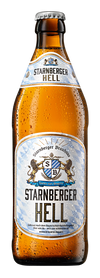What began in 2007 as a small celebration in a California bar has since grown into a global festivity, with people from over 200 cities in nearly 80 countries clinking glasses in the name of beer.
A Brief History of Beer
Beer is one of the earliest recorded recipes in the world. From ancient Mesopotamian brews to medieval monastic ales, the process of brewing and enjoying beer has evolved over thousands of years. Today, the variety is staggering—from bitter IPAs and creamy stouts to fruity saisons and refreshing lagers.
The Purpose of International Beer Day
International Beer Day isn't just about drinking (although that's certainly part of it). The celebration has three main aims:
To gather with friends and enjoy the taste of beer.
To celebrate those responsible for brewing and serving beer.
To unite the world under the banner of beer by celebrating the beers of all nations together on a single day.
How to Celebrate International Beer Day
1. Visit a Local Brewery
Support your local economy and discover unique brews by visiting nearby craft breweries. Many offer tours and tasting flights, so you can experience the brewing process and sample a range of flavours.
2. Try a New Style or Foreign Beer
Expand your palate by choosing something outside your comfort zone. Whether it's a Belgian Trappist ale, a Japanese rice lager, or a Mexican Vienna-style beer, use the day to explore the world's brewing diversity.
3. Host a Beer Tasting
Gather a few friends and turn your home into a mini beer festival. Pick up an assortment of local and international beers, create some tasting notes, and pair them with cheeses, meats, or pub-style snacks.
4. Raise a Toast to the Brewers and Bartenders
Don’t forget the people behind the pints. Whether it’s your favourite bartender at the local or a hardworking craft brewer, a quick thanks (and maybe a tip) goes a long way.
Beer and British Culture
In the UK, beer is more than just a drink—it’s a social glue. From the snug corners of ancient country pubs to bustling urban taprooms, beer has long played a central role in our cultural and community life. British real ales, IPAs, bitters, and porters continue to influence brewers worldwide.
International Beer Day is a great excuse to rediscover classics like:
London Pride
Timothy Taylor’s Landlord
St Austell Tribute
Thornbridge Jaipur
Beavertown Gamma Ray
Or delve into the newer craft scene with beers from Cloudwater, Verdant, or Northern Monk.
Drink Responsibly and Celebrate Mindfully
As always, moderation is key. International Beer Day is a celebration of culture, craftsmanship, and community—not overindulgence.
So, this August, whether you're enjoying a cold pint in your local, sipping a rare find in a craft bar, or simply relaxing with a few bottles at home, take a moment to appreciate the rich history and global unity that beer represents.
Cheers to International Beer Day!




.jpg)






